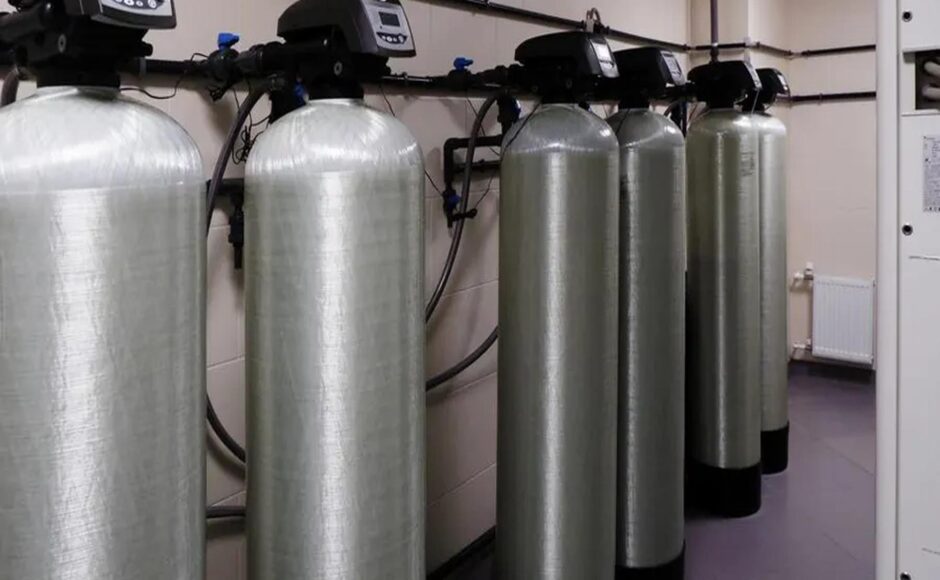Hard water can cause real problems for property owners. Not only can it leave unsightly scale deposits on appliances and reduce their efficiency and lifespan, but it can cause hair and skin to feel dry, and even affect the quality of our laundry. The good news is that water softening systems exist to reduce the hardness of water by removing certain minerals, primarily calcium and magnesium ions. Read on to find out more about these systems and how they work.
The resin tank: the heart of the water softener
The resin tank is one of the key components of a water softening system. Filled with tiny, porous resin beads, this cylindrical tank plays a central role in the ion exchange process that removes hardness minerals such as calcium and magnesium ions from the incoming hard water. The tank, which is made from durable materials such as fibreglass or plastic is an integral part of a water softener unit.
The ion exchange process
When hard water enters the resin tank, the process of ion exchange takes place. The calcium and magnesium ions in the water, those which are responsible for making the water hard in the first place, are positively charged. Comparatively, the resin beads within the tank are negatively charged. As the hard water flows through the tank, the positively charged ions are attracted to and bind to the negatively charged resin beads. This is the process of ion exchange.
As the hard water flows through the tank, the calcium and magnesium ions are removed. The water exits the tank with fewer of these hardness minerals, making it softer as a result. The water softening system has done its job successfully.
Regeneration of the resin beads
Over time, the beads become saturated with the calcium and magnesium ions and need to be regenerated. This regeneration process is crucial since it allows the tank to continue softening hard water effectively. Regeneration is normally initiated by the softener’s control valve, which is programmed to initiate regeneration when needed.
The softened water can then be distributed around the home or commercial premises for various uses, ranging from drinking and bathing to washing dishes and laundry. Using a water softening system can improve the quality of your water, prevent scale from forming on your appliances, and make your skin and hair feel softer.
Source a water softening system from Lubron
At Lubron, we have decades of experience in the water treatment industry, with an excellent reputation for providing effective, cutting-edge water softening solutions. We offer a diverse selection of water softening systems to cater to your specific requirements. Whether you have a small household or a large commercial or industrial operation, we can assist.
To discuss our water softening systems with a member of our team, get in touch today. Call us on 01206866444 or email us at sales@lubron.co.uk today


